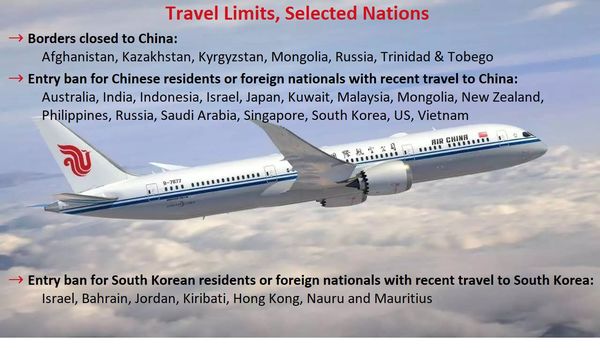Appropriate Response to COVID-19: Korea Herald
As the coronavirus spreads, some countries respond by closing borders, blocking visas for some travelers and blocked cruise ships from ports. At the community level, some protest arrival of patients for monitoring in secure locations and discriminate against Chinese nationals. Societies must resist fear and panic, balancing public safety and individual rights in fighting the coronavirus, argues Robert Fouser for the Korea Herald. Medical justification and careful consideration of risks should accompany restrictions. “After the SARS outbreak, the 2005 World Health Assembly revised the International Health Regulations to improve international cooperation to respond to international health emergencies, which came into legal force in 2007,” he writes. The World Health Organization advises against travel and trade bans, pointing out these can impede response. Fouser concludes, “For international governance to work, nation states need to remember the shoe-on-the-other-foot test. If a nation bans entry to nationals from a specific nation, that nation can turn around and ban entry in return.” – YaleGlobal
Appropriate Response to COVID-19: Korea Herald
International cooperation is paramount as 47 nations report COVID-19 cases; travel and trade bans, other restrictions impede the public health response
Friday, February 28, 2020
Read the opinion essay from the Korea Herald about attempts to contain COVID-19.
Robert J. Fouser, a former associate professor of Korean language education at Seoul National University, writes on Korea from Pawtucket, Rhode Island.

(Source: South China Morning Press; KBS Radio)
The Korea Herald
opyright Herald Corporation. All Rights Reserved.